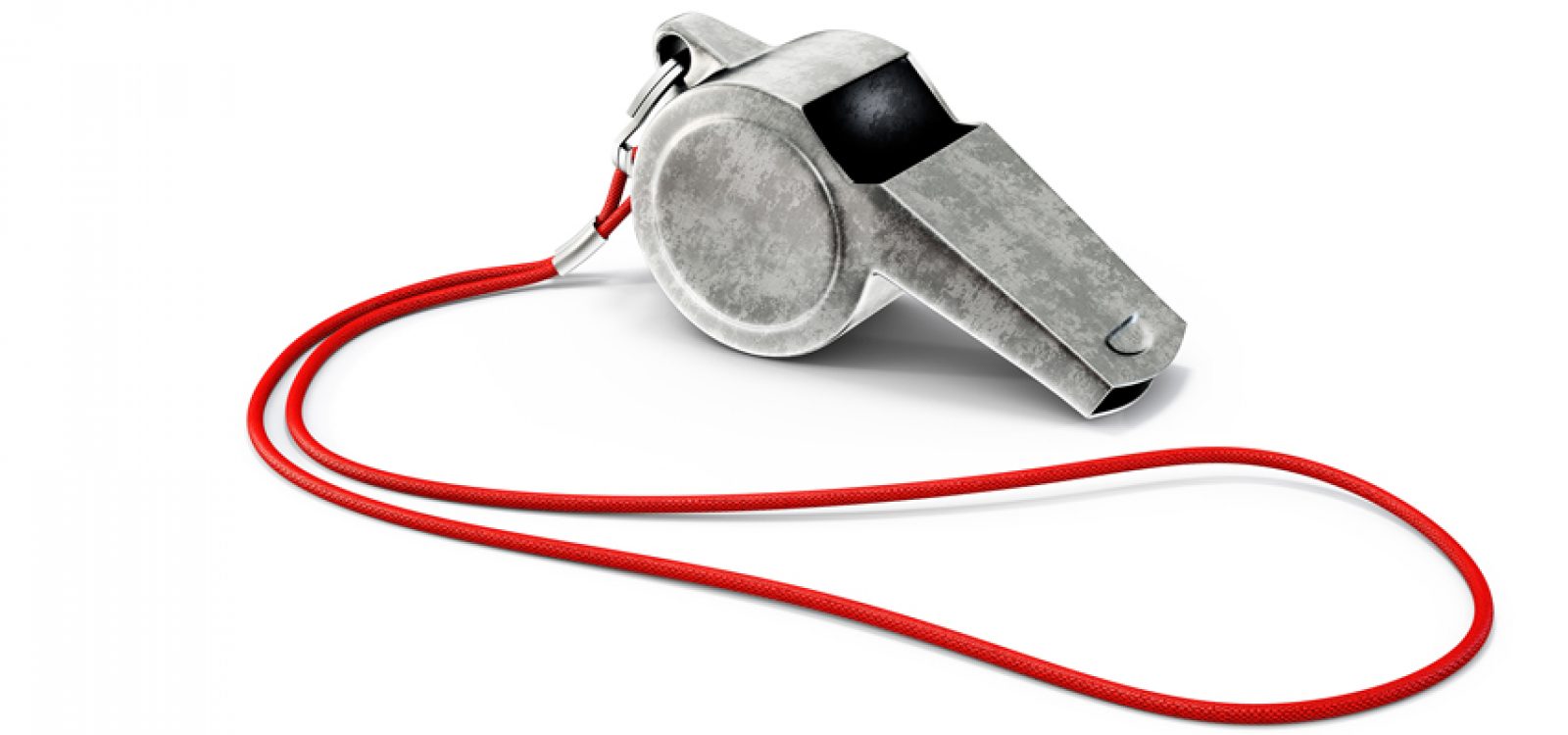
Whistleblowing
My three year old son loves blowing whistles. He stands bolt upright with a gleam in his eye and blows like a wolf hungry for bacon, trying to demolish a house of bricks. In that moment he is fearless and invincible, a sheer force of nature, with a clear purpose and no care for consequence. He has nothing to lose. And so it should be for any child.
For the actuary caught in the quagmire of complexity and uncertainty of deciding to play the last card in their hand, the reality is very different. Adults have something to lose– our jobs, reputation, peace of mind, family, colleagues, mentors and friends – everything we have worked hard for during all those years.
There is often nothing to compensate for doing the right thing.
Integrity is always simple on the theoretical level. If X then Y. The reality is much more difficult as the post event accounts
of many whistle-blowers have shown. There are rarely clear decisions. There is significant pressure and stress, and those are not the best circumstances for making any type of decision, never mind such an important one.
The public has reasonable expectations that we can be relied on to do the right thing, and a failure to prepare is very likely to lead to a failure to act.
X may or may not have happened yet, it depends on your perspective, it will be sorted soon, no need to worry, that is not your role, someone else is taking care of it, don’t you trust me, why are you being so difficult, this is an important client, you seem very stressed, perhaps someone else can do this better than you?
Fortunately, the instances where actuaries were called to press the big red button have been remarkably rare. But that is no excuse for us not to be prepared for such an event. Integrity is popularly considered an aspect of the body, not the mind.
Like all physical activity, mastery requires training, practice, and conditioning. As a professional, we are relied on to be masters of our practice. The public has reasonable expectations that we can be relied on to do the right thing, and a failure to prepare is very likely to lead to a failure to act. Imagine running a marathon with nothing other than a practice stroll around the block.
Until now, the training provided to members has arguably been minimal. If I am ever caught in the headlights of having to consider whether to whistle blow, I doubt the couple of hours of well-intentioned briefings at the professionalism course in those heady youthful days when I’d just finished my exams, come back to me. I have to admit that in some ways, I was just as oblivious of responsibility, consequence and loss in my early twenties as my son is today.
Now, the Actuaries Institute is addressing the issue head on with a release of the online course on whistleblowing. No doubt members will be encouraged to complete the course. I hope you will be more than encouraged and make time for it in your already busy and packed schedule.

CPD: Actuaries Institute Members can claim two CPD points for every hour of reading articles on Actuaries Digital.






